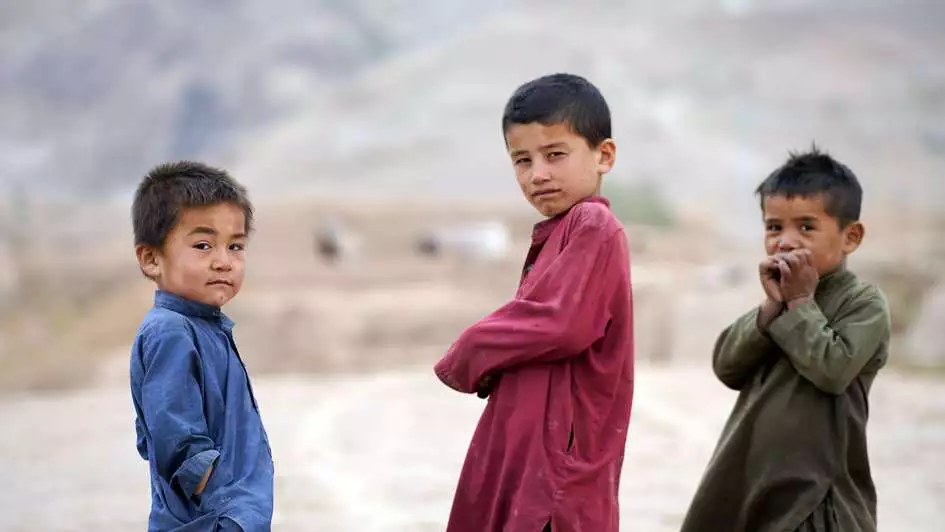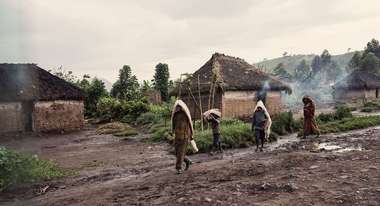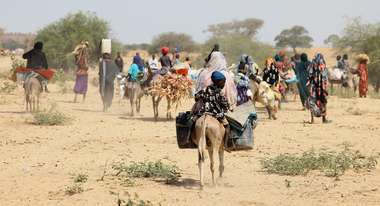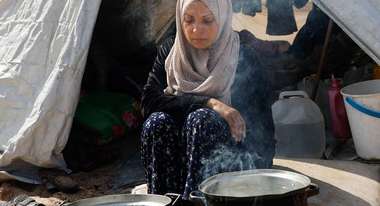The people in urgent need requires fast assistance
Welthungerhilfe on the Afghanistan donor conference.

Bonn/Berlin, 2021-09-12 More than half of the people there rely on humanitarian assistance, in the form of food, drinking water, medical supplies, and accommoda-tion. 13.2 million people do not have enough to eat - one third of the inhabitants of the country are going hungry. Since the start of 2021, 590,000 people have fled their villages due to the fighting in the country, many of them coming to Kabul. In rural areas in particular, there is urgent need. Fact-finding missions by local Welthun-gerhilfe staff over the last two weeks in the north of Afghanistan (in the provinces of Jawzjan, Balkh, and Samargan) have shown the dramatic humanitarian situation.
Many houses have been destroyed by the fighting, and must be repaired before the imminent onset of winter, to provide protection from the cold. Most of the villages visited had no access to drinking water, i.e. people are either dependent on water deliveries or they drink water from unprotected sources or rivers. Many women live alone with their children; this is the case in one in four households. Either the men have died, or they are living as refugees in neighbouring countries, or they have been involved in fighting. Depending on what the Taliban order, it is difficult for these women to leave their houses. Many of them do not know how they can pay for food. Many villages are very remote, and the nearest market is often more than 10 kilo-metres away. This is an enormous problem, particularly for single women. None of the villages are currently receiving food aid from outside: State assistance and food distribution by the UN have stopped.
Humanitarian assistance must urgently be restarted and increased to save lives. Welthungerhilfe is in the country, and wants to support these people in urgent need. It is necessary to negotiate the basic conditions for provision of assistance with the new government. This includes free and unhindered access to people in need, the neutrality of humanitarian assistance, and safety guarantees for aid workers. These negotiations should be carried out by the German government and the international community. Humanitarian assistance is a clear priority. The second step is to deter-mine when and under which conditions bilateral state development assistance can be continued. There should also be clear conditions to cover this issue.
Welthungerhilfe is one of the largest private aid organisations in Germany; politically independent and non-denominational. It is fighting for “Zero Hunger by 2030”. Since it was founded in 1962, more than 10,369 overseas projects in 70 countries have been supported with 4.2 billion euros. Welthungerhilfe works on the principle of empowering people to help themselves: from fast disaster relief to reconstruction and long-term development cooperation projects with national and international partner organisations.







